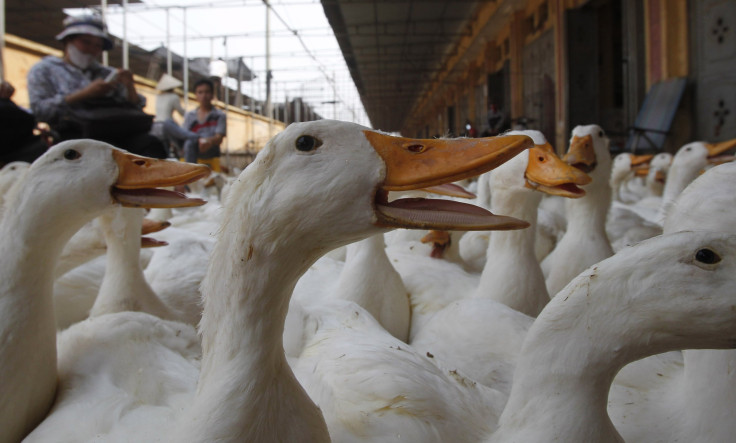Hundreds Of Thousands Of Birds To Be Culled After Highly Contagious Flu Strain Detected In Netherlands

Cases of bird flu were detected in farms in the Netherlands and the United Kingdom on Sunday. Although British authorities said that the virus detected in a duck-breeding farm in East Yorkshire posed “very low” risk to the public, the strain detected in a poultry farm in the Netherlands was much more contagious, according to media reports.
“This highly pathogenic variant of avian influenza is very dangerous for bird life,” the Dutch government said, in a statement released Sunday. “The disease can be transmitted from animals to humans.”
The Dutch government imposed a three-day ban on transport of all poultry products to and from all farms in the country. All of the 150,000 birds at the farm in the village of Hekendorp, nearly 40 miles south of the capital city of Amsterdam, are also being culled, according to media reports.
The virus detected in the Netherlands was reportedly identified as H5N8 -- the strain that had forced German authorities to carry out the culling of over 30,000 turkeys in a farm in the northeastern state of Mecklenburg-Western Pomerania during an outbreak earlier this month.
The strain of the virus in the U.K. has so far not been identified, according to a BBC report. However, British authorities reportedly ruled out the deadly H5N1 virus, which has a mortality rate of 60 percent within infected humans.
Meanwhile, British authorities reportedly placed an exclusion zone around the duck farm and are in the process of culling over 6,000 birds.
“We are taking immediate and robust action which includes introducing a 10km (6 mile) restriction zone and culling all poultry on the farm to prevent any potential spread of infection. A detailed investigation is ongoing,” a spokesperson for the Department for Environment, Food and Rural Affairs reportedly said. “We have a strong track record of controlling and eliminating previous outbreaks of avian flu in the U.K.”
© Copyright IBTimes 2025. All rights reserved.






















